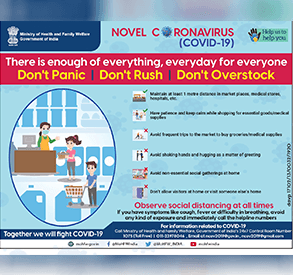Microfinance and unsecured SME loan pools reported the highest delinquencies last year
The rising Covid-19 cases in April 2021 has again raised concerns on the asset quality of the retail loans of non-banking financial companies (NBFCs) and housing finance companies (HFCs) given the increasing instances of lockdowns in various cities coupled with gradual rise in severity of such restrictions by some State Governments.
The restrictions on movement would have a bearing on collection efforts for the NBFCs, especially for microfinance loans where cash collections still remain dominant. Commercial vehicle loans could also face stress if the inter-state restrictions are re-imposed, though even the current restrictions put in place in key geographies like Maharashtra and Delhi where non-essential services are closed would lead to lower fleet utilisation for the operators.
Housing loans are expected to remain most resilient as was seen even last year given the secured nature of the asset class and the priority given by borrowers to repay such loans. ICRA’s outlook on the rated pass-through certificates for securitisation transactions still remains ‘Stable’ as the credit enhancements in ICRA-rated securitisation transactions are sufficient to support investor payouts even if collections drop by 5-10% for a few months, but a prolonged stress on the collections would eventually have a bearing on the credit quality of these instruments.
“While it is too early to comment on the extent of impact on the asset quality of retail loans due to the rising Covid cases, there is reason to be cautious,” says Abhishek Dafria, Vice President and Head – Structured Finance Ratings at ICRA.
“Post the nationwide lockdown last year, we had witnessed a severe drop in collections for most asset classes though the availability of a moratorium provided a breather from an NPA-recognition perspective. The restrictions at present are localized and less harsh, but the severity has been gradually increasing as the surge in Covid cases is yet to be brought under control.
“In ICRA-rated securitisation transactions, we had seen microfinance and unsecured SME loan pools report the highest delinquencies last year post the end of the moratorium period, followed by vehicle loan pools and then the housing loan and loan against property pools. In our view, the risk categorization would remain similar in the current environment but the geographical concentration of pools to regions where Covid cases are relatively higher and thus Government restrictions are severe would matter more from a risk perspective,” he said.
Securitisation volumes had dropped to a quarterly record low of ~Rs.7,500 crore in Q1 FY2021 due to the nationwide lockdown though had seen healthy sequential growth in subsequent quarters, achieving volumes of ~Rs.40,000 crore in Q4 FY2021.
Following the second wave of the pandemic, ICRA expects securitisation volumes to again get impacted in Q1 FY2022 as NBFCs and HFCs will be more selective in fresh lending thereby reducing their financing needs while the investors for securitised pools may again exhibit a ‘wait and watch’ approach.
“Early signs reflect that securitisation volumes in Q1 FY2022 would remain muted,” added Dafria.
“Securitisation of microfinance and SME loans which had seen a ~70% Y-o-Y decline in FY2021 would face the brunt. Nonetheless, if the rise in Covid cases is brought under control soon with limited impact on the economic activities, we expect overall securitisation volumes to witness a 40-50% Y-o-Y increase in FY2022 with a high proportion of securitisation happening in the second half of the fiscal,” he said. #economy #banking #health #investment #finance /fiinews.com









